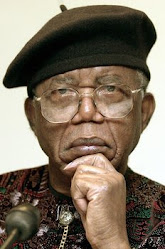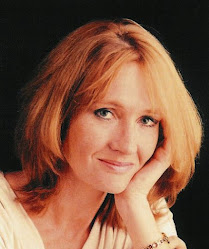Four women - Sisi, Efe, Ama and Joyce - sell sex in Antwerp, Belgium in a bid to give themselves and their loved ones a better life. Their dreams vary in details but they share a common thread. Of the lot, Sisi is the only one who attended college and in a way she seems to be the only one with the right to dream dreams of grandeur. The right to demand from life what was promised her. She did everything she was told were sure recipes for financial success and stability. She studied hard at school, went to college and brought home a degree. The degree was to be a guarantee to a fantastic well paying job. A job that would lift her family from penury. A job that would fund all their dreams. Years after exiting college nothing is forthcoming and Sisi watches in anger "...as life laughed at the grandiosity of her dreams..." like it has done to those of her parents and boyfriend. When Dele broaches the idea of moving to Antwerp as a sex worker, Sisi "expected that her anger would give her the courage to slap his fat face. She expected to want to smash his mobile phones through his double-glazed windows. She waited for the hurricane of anger that would drive her to shout... She turned to go, but her feet were stuck in quicksand. They would not move."
Efe has been through her own share of life's mistakes. She wants a better life and even before she gets to Belgium she already has an idea how these things work. When Dele asks her if she wants to leave the country, she asks: "'If I wan' go abroad, Oga Dele? Anybody dey ask pikin if de pikin wan' sweet?' Who did not want to go abroad? People were born with the ambition, and people died trying to fulfill that ambition." Efe agrees to Dele's terms and conditions even before she asks him what her job in Antwerp would be.
For Ama who has been burnt by family, Dele's offer is a welcome escape and a ticket to the fulfillment of her aspirations. She accepts his offer and runs with it. Joyce escaped the horrors of Sudan but she still bears the invisible scars. She finds a Nigerian man who brings back sunshine into her life and then he turns around and snatches it away. She vows never to let her happiness depend on another person. Alone with no one who cares for her she works hard to fulfill her dreams.
The individual stories these women divulge puts them in a context that causes us to empathize. They become much more than women who sell their bodies for money. They become human, fleshed out, with understandable behaviors, understandable anguish, needs and wants. Prostitution becomes a product of something much more complex than lax morals and bad choices. It could be the by-product of a convolution of bad circumstances, an unfavorable environment and a series of unfortunate events. Unigwe does not soften the blows life deals out. She does not dole out happy endings to every character. She does not dress up the starkness of their wants, the nakedness of their yearnings. Unigwe does a very good job and I like this novel a lot. I don't know why this is my first Chika Unigwe book but it certainly won't be my last.
[Image via Amazon]
Efe has been through her own share of life's mistakes. She wants a better life and even before she gets to Belgium she already has an idea how these things work. When Dele asks her if she wants to leave the country, she asks: "'If I wan' go abroad, Oga Dele? Anybody dey ask pikin if de pikin wan' sweet?' Who did not want to go abroad? People were born with the ambition, and people died trying to fulfill that ambition." Efe agrees to Dele's terms and conditions even before she asks him what her job in Antwerp would be.
For Ama who has been burnt by family, Dele's offer is a welcome escape and a ticket to the fulfillment of her aspirations. She accepts his offer and runs with it. Joyce escaped the horrors of Sudan but she still bears the invisible scars. She finds a Nigerian man who brings back sunshine into her life and then he turns around and snatches it away. She vows never to let her happiness depend on another person. Alone with no one who cares for her she works hard to fulfill her dreams.
The individual stories these women divulge puts them in a context that causes us to empathize. They become much more than women who sell their bodies for money. They become human, fleshed out, with understandable behaviors, understandable anguish, needs and wants. Prostitution becomes a product of something much more complex than lax morals and bad choices. It could be the by-product of a convolution of bad circumstances, an unfavorable environment and a series of unfortunate events. Unigwe does not soften the blows life deals out. She does not dole out happy endings to every character. She does not dress up the starkness of their wants, the nakedness of their yearnings. Unigwe does a very good job and I like this novel a lot. I don't know why this is my first Chika Unigwe book but it certainly won't be my last.
[Image via Amazon]



















